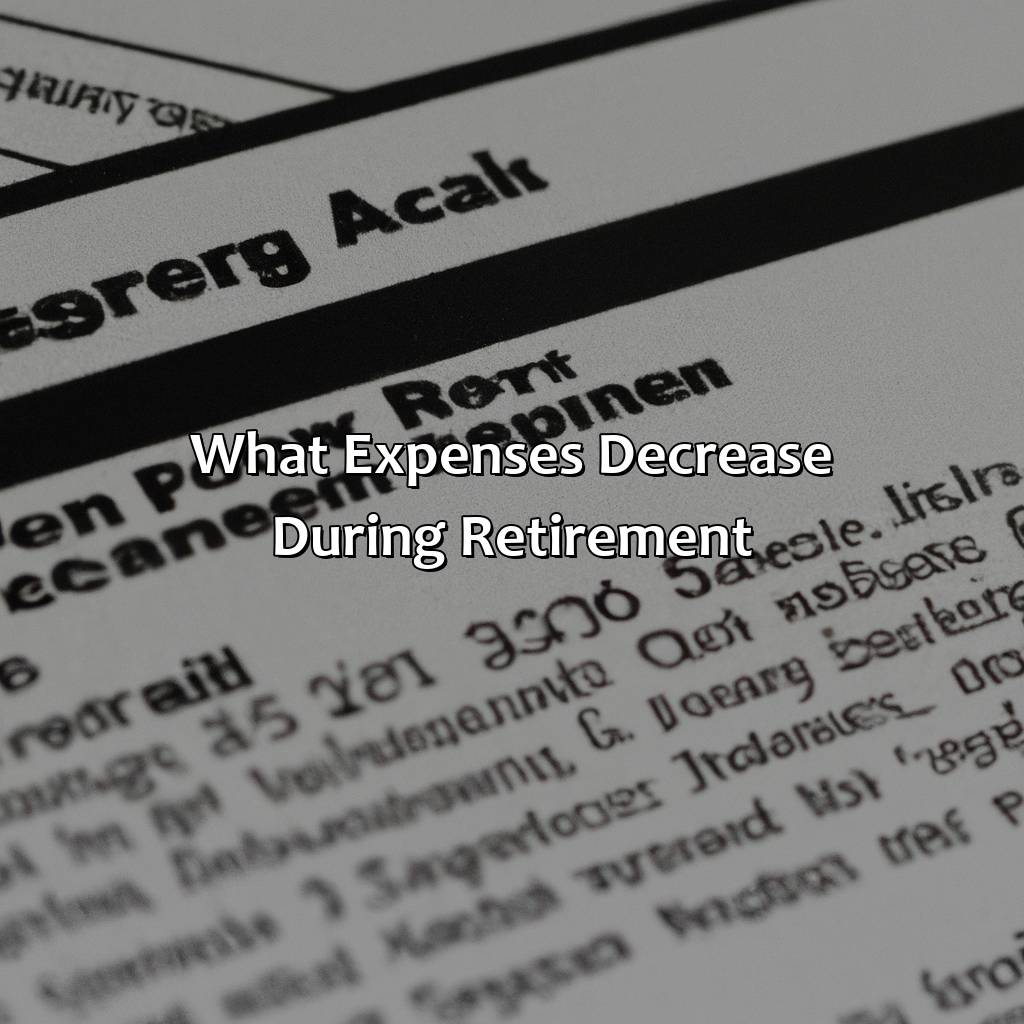What Expenses Decrease During Retirement?
Key Takeaway:
- Housing, transportation, healthcare, and taxes are essential expenses that decrease during retirement. Retirees typically downsize their homes, have lower transportation expenses due to less commuting, have lower healthcare expenses due to Medicare coverage, and have lower taxes due to a lower income.
- Non-essential expenses such as entertainment, clothing, personal care, and work-related expenses also tend to decrease during retirement. Retirees may have more free time for low-cost leisure activities, may need fewer expensive work clothes, and no longer have work-related expenses.
- To plan for decreasing expenses during retirement, it’s important to have a comprehensive retirement plan that takes into account all of your income sources, including Social Security and retirement savings. You should also consider any potential unexpected expenses, such as healthcare costs, and have a plan for managing them.
Are you worried about how the transition to retirement will affect your finances? You don’t have to! Learn about what expenses decrease during retirement, so you can make the most of your retirement budget!
Overview of Retirement Expenses
Retirement Expenses Analysis
Retirement brings about a significant change in one’s financial lifestyle. It is essential to plan for the different expenses that may arise during this phase of life. There are several expenses that decrease during retirement, including transportation, clothing, and work-related expenses. On the other hand, healthcare, housing, and leisure expenses might increase. By estimating and analyzing these expenses, individuals can plan their finances accordingly to ensure a peaceful retirement.
It is crucial to keep in mind that retirement expenses may vary based on individual circumstances. While some individuals might have to bear additional expenses such as caregiving or home maintenance, others may have fewer expenses due to their living arrangement or healthcare coverage. Therefore, it is essential to prepare a customized retirement budget and plan for any unforeseen expenses.
Interestingly, earlier generations of retirees used to spend significantly less on leisure activities compared to the current generation. With increasing life expectancy and better health, retirees now allocate a considerable portion of their retirement income to leisure activities. Planning for such expenses can help retirees maintain an active and fulfilling lifestyle.
According to a survey, about 43% of retirees spend less during retirement than their preretirement years. This change could be due to reduced expenses such as taxes and savings, which effectively reduces the cost of living. Moreover, some retirees choose to move to locations where the cost of living is lower, enabling them to stretch their retirement savings further.
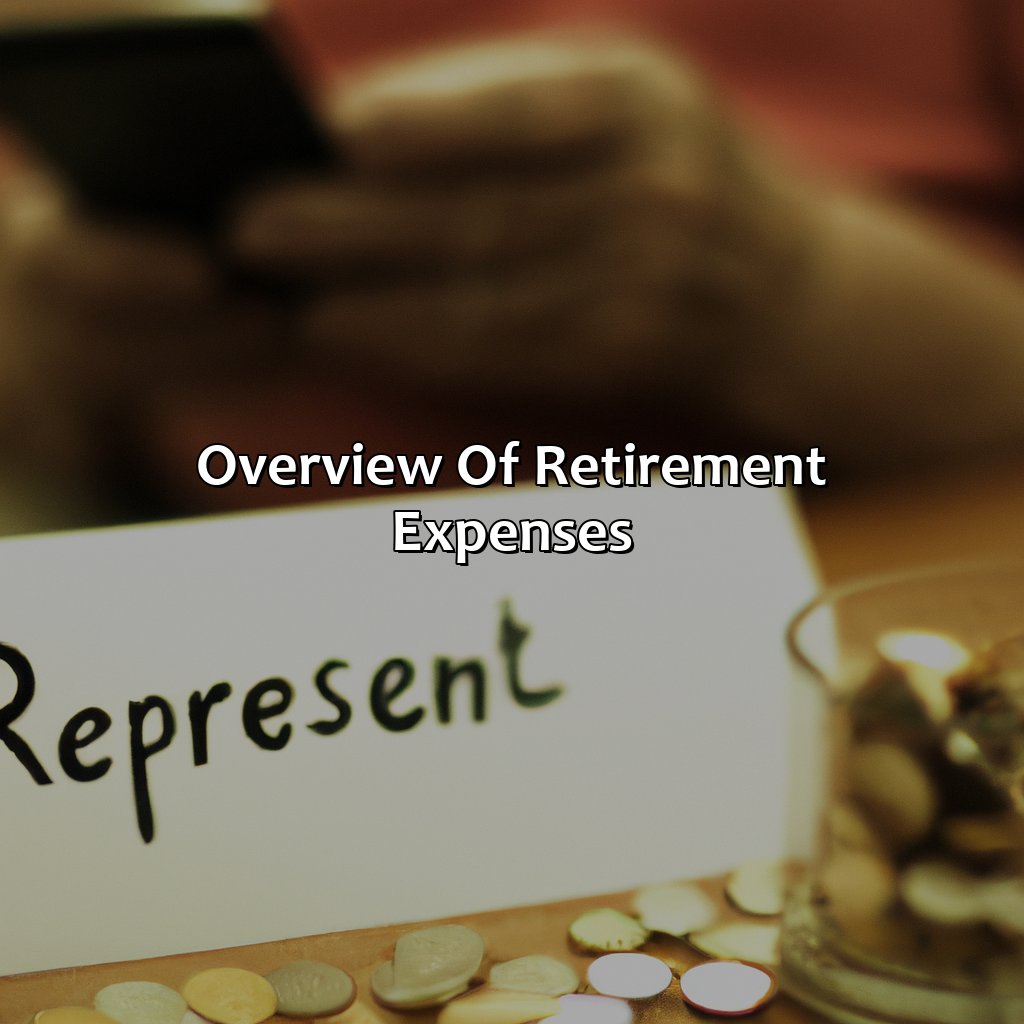
Image credits: retiregenz.com by Adam Arnold
Essential Expenses that Decrease
For a solid financial life in retirement, it is vital to control and minimize expenses. Create a budget and focus on essential expenses that reduce in retirement. These are: housing, transportation, healthcare, and taxes. Let us inspect each of these separately to understand how to lower costs and maintain financial stability during retirement.
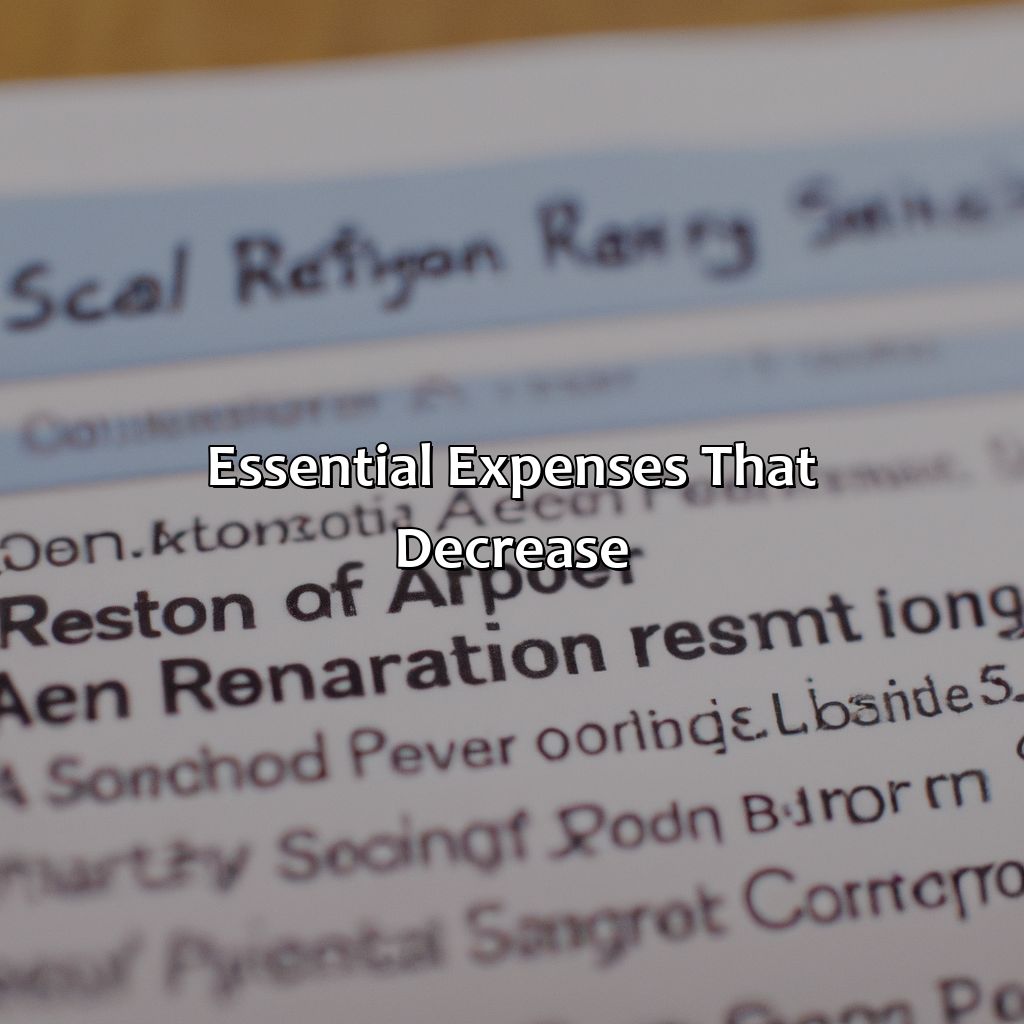
Image credits: retiregenz.com by David Washington
Housing Expenses
As one enters retirement, the expenses that are incurred on a day-to-day basis tend to decrease. Housing related expenses, in particular, see a significant drop.
Home maintenance costs, property taxes and mortgage payments are some of the housing expenses that reduce during retirement. In addition to this, energy costs also see a decline as heating and cooling demands diminish with fewer people living in the house.
It is important for retirees to consider their housing situation during retirement and make necessary adjustments. Downsizing or relocating to areas with lower costs of living can help further reduce these expenses.
In fact, I recently heard about a couple who decided to downsize from their large family home into a smaller condo after retiring. The move not only reduced their housing expenses but also allowed them more flexibility in pursuing travel opportunities they had longed for.
Retirement means finally being able to afford that bike you always wanted, because let’s face it, your days of commuting to work are over.
Transportation Expenses
Driving Costs during Retirement:
Retirees may experience a reduction in driving costs due to lesser commuting needs and the availability of public transportation. This article demonstrates how you can save more money during retirement by minimizing your transportation expenses.
- Public transport fares might be cheaper if used frequently.
- Less frequent long drives result in lower fuel costs, car maintenance, and repair expenses.
- The cost of car insurance goes down when retired individuals drive less.
- The reduced need for vehicle upgrades saves money.
- Retirees who relocate might choose a neighbourhood where local amenities are within walking distance.
- Taking advantage of senior discount programs for travel allows retirees to save more money without changing lifestyles significantly.
Reduced Need for cars:
Retirees often consider downsizing their cars since they no longer have to worry about the space needed for raising children or commuting long hours. As smaller vehicles tend to have better fuel consumption rates, this decision could lead to further savings.
The Reality Check:
With many expenses still lingering post-retirement or with the possibility of inflation touching these prices after another decade has come and gone, it is crucial not to cut essential transportation expenses beyond control. Remember, you don’t want to miss out on discounted commodities in any form that will eventually burden you later. Consult with financial experts and plan accordingly.
Retirement is the time when healthcare expenses increase, but luckily we have Medicare to make us feel like we’re not getting ripped off too badly.
Healthcare Expenses
Revealing pertinent details about your Medical Expenses during retirement.
Navigating healthcare expenses can be a daunting task during the retirement phase. While some of these expenses may reduce, there are certain aspects you should remain mindful of. It is important to factor in costs related to dental care, long-term care insurance, and prescription drugs, among others.
What’s more concerning is that Medicare coverage is typically insufficient; many individuals end up dipping into their savings or having to purchase supplemental insurance coverages. Hence, planning for such expenditure becomes essential.
Foreseeing these Healthcare Expenses could protect you from financial strains in the future.
Don’t leave this aspect of retirement planning unprepared! Ensure pre-emptive measures and financial buffers are put in place to tackle any unforeseen circumstances when it comes to medical expenses during your golden years. A stitch in time saves nine!
Retirement may mean fewer expenses, but unfortunately taxes don’t retire with you.
Taxes
The amount you pay the government in fees can be significantly lowered during your retirement. There are options such as Roth IRAs that allow pre-tax dollars to grow tax-free, avoiding any future taxes on withdrawals. Annuities can also provide tax benefits by allowing for compounding interest without any taxes being applied until the money is withdrawn.
Moreover, downsizing or relocating to a state with lower taxes can provide additional advantages. The federal government has various methods of taxation on social security and pensions but depends mainly on income level and marital status.
Many people have found an unexpectedly high tax bill in their retirement with a complicated network of fees and rules. Renee shared her story about this issue after receiving a large bill from the IRS due to extraneous taxable income she didn’t realize. She recommends meeting with a financial advisor before retirement to best understand all financial implications beforehand.
Say goodbye to expensive hobbies and hello to bingo night at the local community center.
Non-essential Expenses that Decrease
Retirement savings can be prioritized by exploring the benefits of decreasing non-essential expenses. These may include entertainment, apparel, personal care, and work-related costs. Examining these subsections will help you find useful methods to cut expenses.
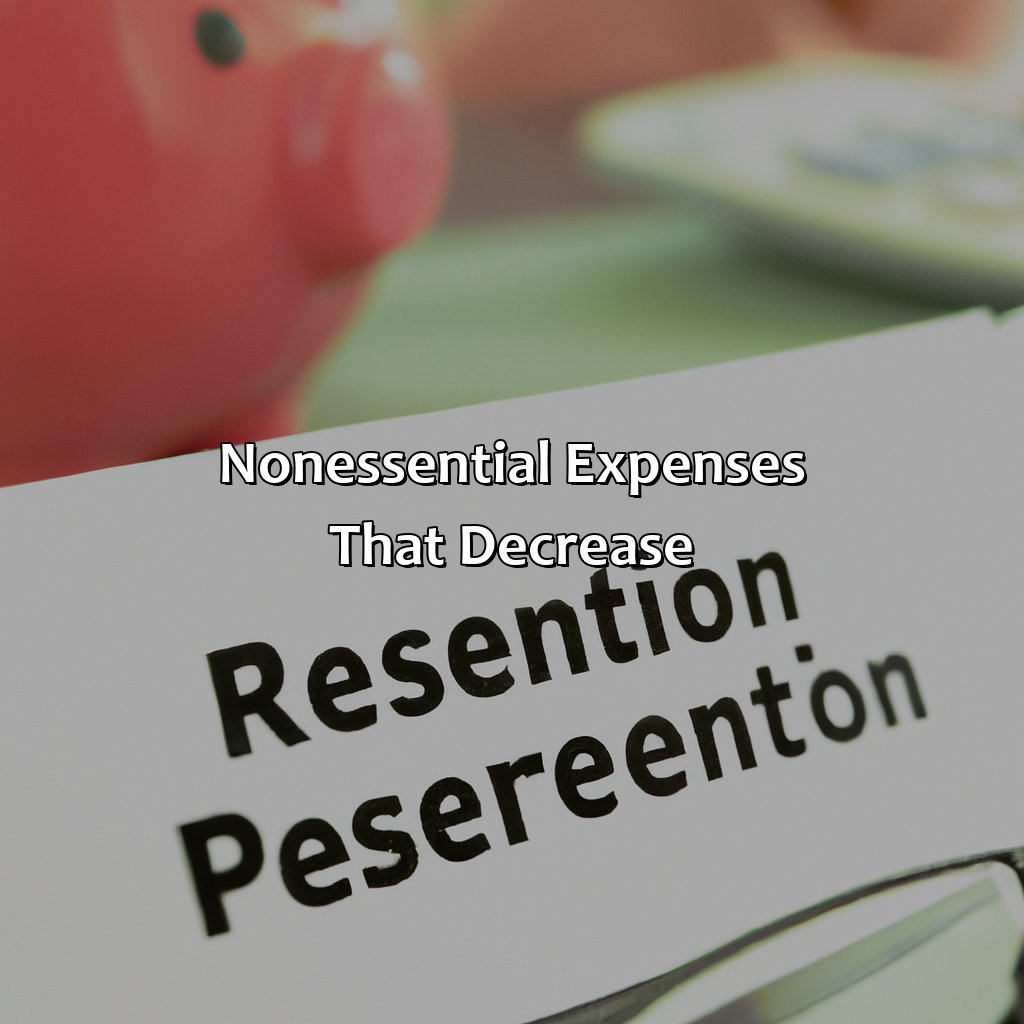
Image credits: retiregenz.com by Adam Woodhock
Entertainment Expenses
For retirees, expenses related to leisure activities can significantly decrease. Activities such as vacations, dining out at restaurants, going to concerts and movies may not be as appealing or necessary during this phase of life. These entertainment expenses can be reduced without sacrificing enjoyment.
Expanding on the topic, retirees may find that their priorities shift towards more cost-effective leisure options. Instead of going on expensive trips, they may opt for local travel or take up hobbies that require less spending. In addition, streaming services and at-home entertainment options have become popular alternatives to costly outings.
It is important to note that cutting back on entertainment expenses does not mean sacrificing social interactions. Seniors can still enjoy socializing with friends and family through other means such as hosting potlucks or game nights at home.
A true history that highlights the importance of budgeting for entertainment expenses during retirement is that of a retired couple who continued to spend extravagantly on vacations and dining out. As a result of overspending, they ended up having to sell their home and downsize into a smaller apartment. This story emphasizes the need for retirees to prioritize and plan their spending carefully in order to avoid detrimental financial consequences.
“I may be retired, but my fashion sense is still in its prime – although my budget for it is not.”
Clothing and Personal Care Expenses
When it comes to the category of clothing and personal care, there are a few expenses that decrease during retirement. Let’s take a closer look at what those might be.
- Work-related clothing expenses such as suits, uniforms, or special shoes are no longer necessary.
- Dry cleaning bills will likely decrease without the need for regular work attire.
- Haircuts and salon services may also reduce unless maintaining a certain appearance is important to you.
- Makeup and beauty products can be decreased as well if not needed for professional settings.
- Purchases of new clothing items or accessories may decline with fewer social events or activities to attend.
- Gym memberships or exercise equipment costs may decrease with less desire or need to maintain a specific physique.
Aside from these changes, it’s important to note that everyone’s personal needs vary. Some retirees may prioritize maintaining their appearance while others prioritize comfort and simplicity. The key is finding the balance that works best for you, considering your own unique circumstances.
To save money in this category during retirement, consider shopping at consignment shops or discount stores for clothing items. Also, opt for low-maintenance hairstyles or search for DIY beauty hacks to reduce salon expenses. With some careful consideration and budgeting, it’s possible to enjoy a fulfilling retirement without breaking the bank on clothing and personal care expenses.
Say goodbye to suits and ties, and hello to pajamas all day – work-related expenses are gone in retirement.
Work-related Expenses
As we approach retirement, many expenses decrease or even disappear completely. Let’s delve into the world of work-related expenses and uncover what decreases when we enter our golden years.
- Commute Expenses – There’s no more need to spend on gas, car maintenance, public transportation or parking fees when you retire.
- Dress Code – Business attire adds up quickly over time. In retirement, your dress code becomes much more casual and economical.
- Dining Out – Your lunch breaks will now be spent enjoying meals you prepare at home instead of costly lunches out with colleagues.
- Training – As a retiree, there are no more training sessions or certifications to complete in order to further career growth.
- Taxes & Contributions – Your paycheck will no longer be subject to taxes and contributions for retirement accounts like 401(k)s or IRAs.
It’s worth noting that while work-related expenses take a dip in retirement, healthcare costs often increase significantly. These costs can include premiums for Medicare Part B and D, co-pays and deductibles not covered by insurance.
Don’t let the fear of missing out keep you from retiring comfortably. Take a closer look at your expenses and start planning today to enjoy a well-earned and financially secure retirement.
How to Plan for Decreasing Expenses During Retirement
During Retirement: Tips to Lower Your Expenses
Many individuals worry about the rising costs of living during retirement. However, the good news is that there are several ways to lower expenses and make the most of your retirement savings. Here are some tips to plan for decreasing expenses during retirement:
- Consider Downsizing: Downsizing your home is a great way to save money during retirement. You can sell your larger home and move into a smaller one or even an apartment. By doing this, you can save on your mortgage, utilities, and maintenance costs.
- Review Your Insurance Coverage: Evaluate your insurance policies such as home, auto, and health insurance, and shop for better plans that offer more coverage and lower premiums. This will help you save money in the long-term.
- Plan for Healthcare Expenses: Make a budget for your healthcare expenses as medical costs tend to increase as you get older. Invest in a good health insurance policy and consider setting up a health savings account (HSA) to cover out-of-pocket expenses.
- Travel Off-Season: Traveling during peak season can be expensive and may not fit within your retirement budget. Instead, opt for traveling during off-seasons when prices are low.
- Rethink Your Subscription Services: Subscription services can add up easily, and it is important to review them regularly. Consider canceling subscriptions you no longer need or use.
It is also important to keep in mind that while some expenses decrease during retirement, others may increase, such as healthcare and travel expenses. Make sure to plan accordingly and create a budget that reflects your retirement lifestyle.
One retiree, John, decided to move to a smaller home and downsize his car. By doing this, he saved thousands of dollars on mortgage and car payments, which allowed him to travel more and live comfortably on his retirement savings.
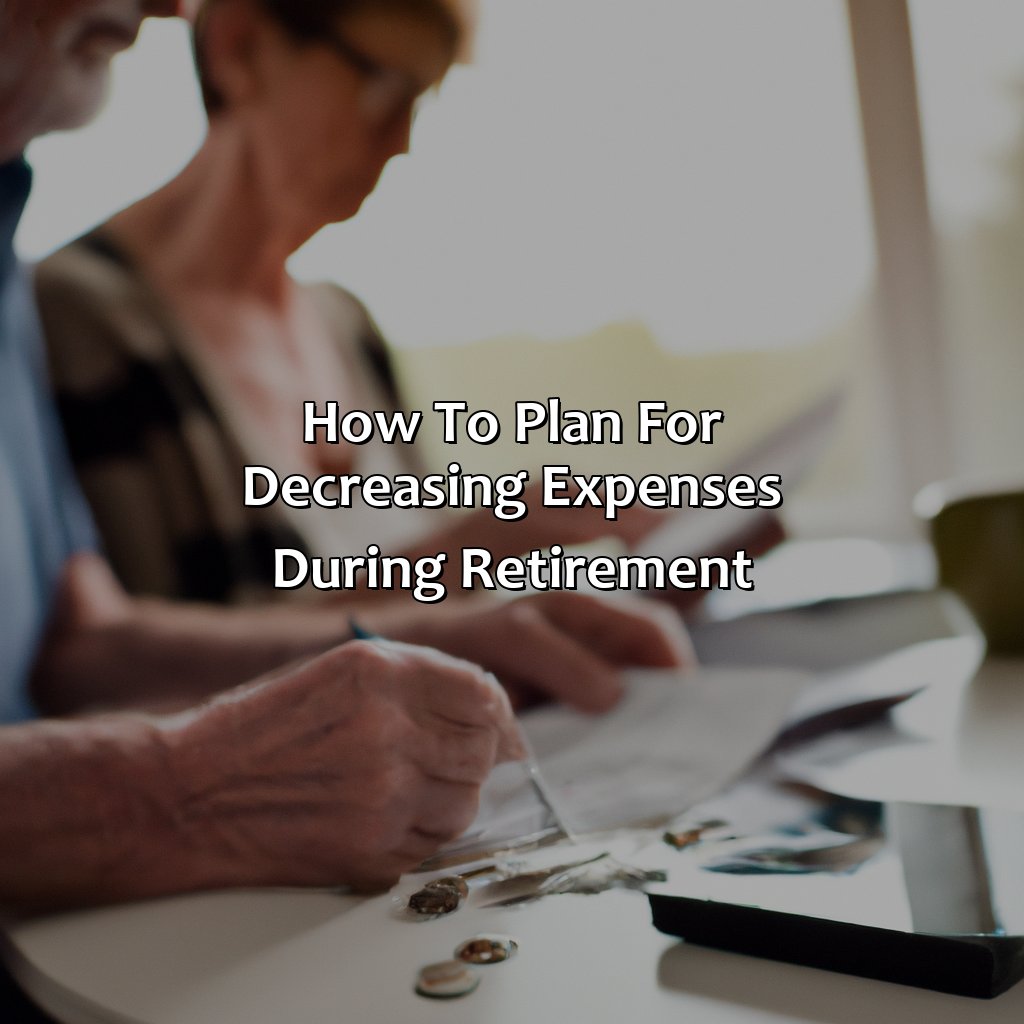
Image credits: retiregenz.com by David Duncun
Some Facts About Expenses That Decrease During Retirement:
Housing expenses may decrease during retirement as mortgage payments are paid off or downsizing occurs. (Source: Investopedia)
Work-related expenses such as commuting costs, work clothes, and meals may decrease or disappear during retirement. (Source: The Balance)
Healthcare expenses may decrease if an individual qualifies for Medicare and/or has access to retiree healthcare benefits. (Source: AARP)
Child-related expenses, such as education costs and supporting adult children, may decrease during retirement. (Source: MarketWatch)
Taxes may decrease during retirement as incomes typically decline and Social Security benefits may not be taxed at all, depending on income level. (Source: U.S. News & World Report)
FAQs about What Expenses Decrease During Retirement?
What expenses decrease during retirement?
During retirement, several expenses may decrease, including:
Will medical expenses decrease during retirement?
Medical expenses may not necessarily decrease during retirement, especially if you have ongoing medical conditions. However, Medicare coverage can help offset some costs.
What about housing expenses?
Housing expenses may decrease during retirement if you have paid off your mortgage or downsized to a smaller, less expensive home. However, property taxes and maintenance costs may continue to be a significant expense.
Do transportation expenses decrease during retirement?
Transportation expenses may decrease during retirement if you no longer have a daily commute to work. However, you may still need a car for errands and appointments, and public transportation costs can add up.
Will entertainment expenses decrease?
Entertainment expenses may decrease during retirement if you are no longer paying for things like work clothes, commuting costs, and after-work social events. However, some retirees may increase their entertainment spending on travel and leisure activities.
What about taxes?
Taxes may decrease during retirement if your income decreases. However, you may still have to pay taxes on retirement account withdrawals and other sources of income. Consult a financial advisor or tax professional for guidance on your particular situation.
 Checkout this IRS Loophole
Checkout this IRS Loophole 
